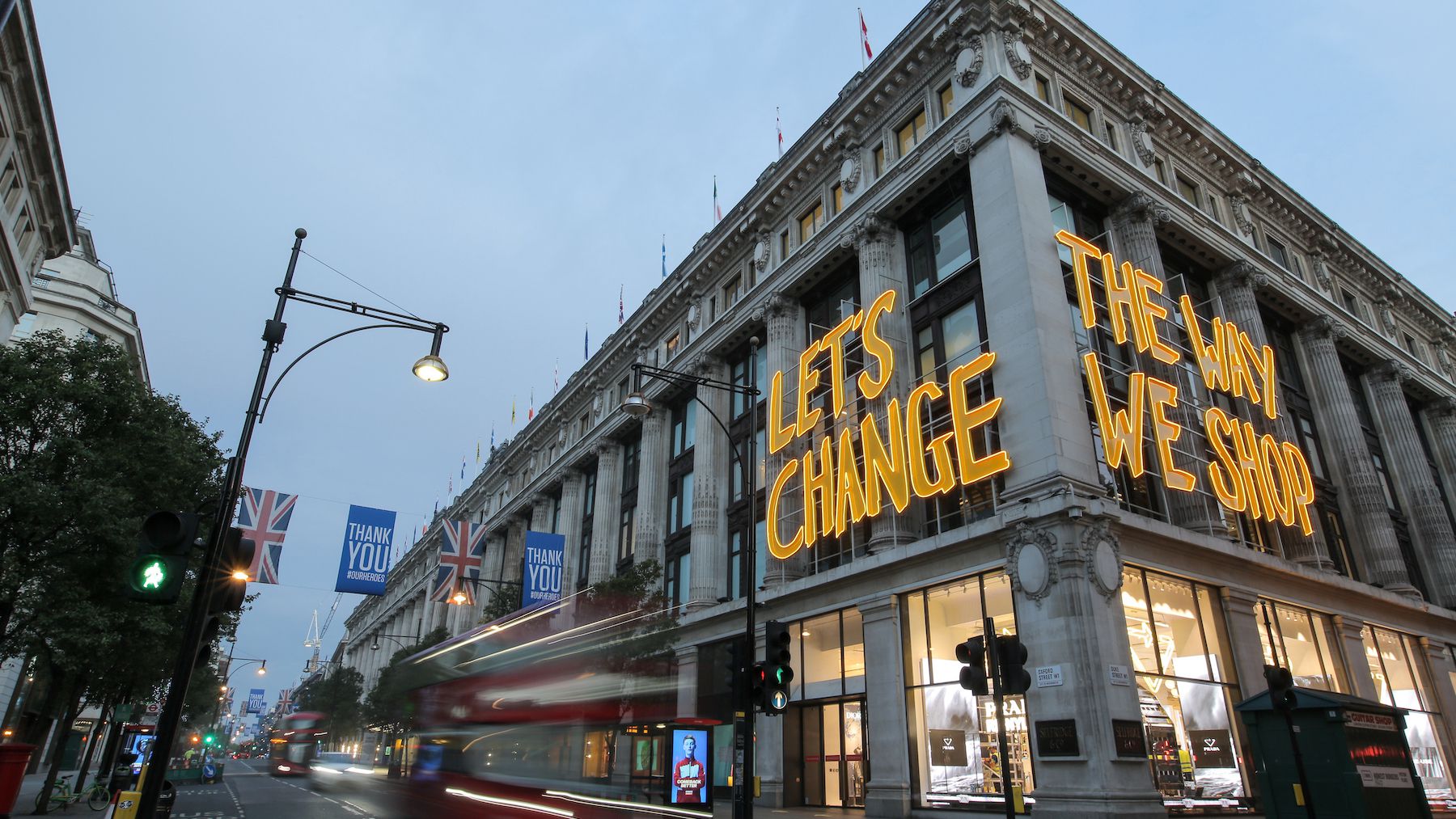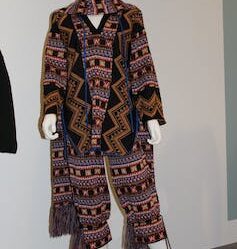
The luxury department store chain said Friday it is doubling down on rental, resale and reuse as it looks to deliver on climate commitments.
By the end of the decade, the retailer is aiming for 45 percent of transactions to come from products made from recycled materials or through services like resale, repair or refills. Today, less than one percent of its transactions meet that bar.
Moving towards these kinds of circular business models is an elusive but increasingly mainstream goal within the fashion industry, offering companies a way to resolve the tension between sales growth and environmental impact.
But while dozens of brands are experimenting with models like resale, few have set a deadline to generate a substantial proportion of sales this way. Whether consignment can even serve as a profitable business model remains an open question.
”What we really need is radical transformation,” said Selfridges managing director Andrew Keith. “The fundamental business model is going to need to change.”
The retailer was early to spot consumer interest in topics relating to sustainability, banning fur in 2005. It’s one of a group of retailers that have set goals to restrict the products they stock in line with ethical and environmental criteria.
The company’s new circularity is part of a broader update to its ambitions, which also include a target for all its products and activities to meet environmental and ethical standards by 2030 and nearer-term targets to ensure half its directors are women, 16 percent of its senior leadership team is made of ethnic minorities and close the gender pay gap by 2025.
Learn more:
How Big Retailers Are Selling Sustainability
Department stores and e-commerce sites like Selfridges, Farfetch and Galeries Lafayette are making moves to promote more sustainable fashion, a shift that could have a powerful impact on the industry.



